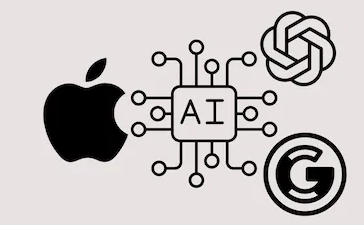Physical Address
304 North Cardinal St.
Dorchester Center, MA 02124
Physical Address
304 North Cardinal St.
Dorchester Center, MA 02124


Artificial Intelligence is continually reshaping our world, touching various industries, from technology to climate change. This week, some monumental developments emerged that capture the breadth of AI’s influence. Let’s dive into the key highlights: AI advertisements, Google’s mounting carbon emissions, and Apple’s unprecedented move to join OpenAI’s board.
The advertising industry has always been at the forefront of adopting cutting-edge technology to better engage audiences. AI-powered advertisements are the latest innovation, promising a new era in personalized marketing.
AI-powered ads utilize machine learning algorithms to target users more effectively. These ads are designed to be:
The integration of AI in advertising offers numerous advantages:
With AI taking center stage, the future of advertising looks promising. Diverse industries are expected to continue leveraging these advanced algorithms to create smarter and more effective campaigns. Companies that invest in AI advertising technology will likely see significant competitive advantages.
As tech giants grow, so does their carbon footprint. Google, often praised for its eco-friendly initiatives, faces scrutiny as its carbon emissions continue to rise.
Despite Google’s aggressive push for sustainability, recent reports indicate an increase in its carbon output. Factors contributing to this rise include:
To mitigate its environmental impact, Google has implemented several strategies:
While Google’s efforts are commendable, achieving carbon neutrality remains a challenging hurdle. Continued innovation and investment in sustainable practices will be necessary to balance their growing carbon footprint with their eco-friendly ambitions. Industry experts argue that increased transparency and more aggressive policies are critical for long-term success.
In a move that surprised many, Apple announced its decision to join the board of OpenAI, one of the leading AI research organizations. This decision could mark a significant shift in the tech landscape.
Apple’s alignment with OpenAI is a strategic move aimed at several objectives:
This partnership is likely to yield several benefits for both entities:
The collaboration between Apple and OpenAI could reshape industry dynamics. It signifies a trend where competition is balanced with strategic partnerships to foster innovation. Given their combined expertise, we can expect significant advancements in AI applications that could influence various sectors, from healthcare to finance.
This week in AI has been nothing short of transformative. From the evolving landscape of AI-powered advertisements to Google grappling with its carbon footprint, and Apple’s pivotal alliance with OpenAI, it’s clear that AI continues to be a driving force in technological and societal progress. As these stories unfold, they offer a glimpse into how AI could shape our future, bringing both unprecedented opportunities and challenges.
Stay tuned for more updates as we continue to track the incredible journey of AI through the lens of these pioneering companies.